Muscatine Mall Rises from Prairie Soil
General Management announced in March 1970 that Muscatine would soon see a 287,000-square-foot enclosed mall built on Park Avenue, with two anchors already confirmed.
Groundbreaking was held on May 17, 1970, for what was then called Muscatine Plaza. Construction crews began work soon after on the property that would later become known as Muscatine Mall.
Montgomery Ward opened its first location on November 27, 1970, in a 55,000-square-foot building that featured auto service bays and an in-store restaurant.
Woolworth came in June 1971, filling a 72,000 square foot unit, then the chain's largest single-level store. The main corridor, stretching 663 feet long and 36 feet wide, joined the Ward and Woolworth buildings.
A ribbon-cutting ceremony on August 5, 1971, marked the grand opening, featuring pony rides and a vintage car show that drew shoppers inside for the first time.
Opening day featured tenants like Baskin-Robbins, Kinney Shoes, and Karmelkorn, with Pizza Hut, Maurices, and Musicland opening soon after. Walgreens filled a corner, and Hy-Vee set up a supermarket before relocating later.
The plaza's first-year tenant count reached 27 by September 1972, when the mall hosted anniversary prize drawings totaling more than $600.
For anyone searching for things to do in Muscatine, Iowa, during the early 1970s, the new mall quickly became a hub of activity.
It brought national chains and a movie theater together under one roof, changing the city's commercial core in a matter of months.
New Name, New Anchors (1972–1979)
A year later, chamber of commerce leaders pointed to larger malls under construction in the Quad Cities as competition, though they believed downtown Muscatine and the plaza could both survive.
By 1974, the center added Morrey A and Bostwick's for Men, while the Stevensons store underwent remodeling under Salkin & Linoff.
The property underwent a change in scale the following year when JCPenney opened a 48,000-square-foot department store on the east side in 1975.
This new anchor replaced a longtime downtown location and helped shift the plaza's identity into Muscatine Mall, a name that stuck.
With three anchors in place, the mall positioned itself as a larger retail destination in the city.
Montgomery Ward closed in September 1978. The company concluded that the building was too small for a full merchandise line.
In August 1979, the space reopened as Petersen Harned Von Maur, remodeled from top to bottom and stripped of its old automotive repair wing.
Around the same time, Hy-Vee moved from the mall into a larger store on the periphery, and General Growth sold Muscatine Mall along with nine other centers to Aetna Life Insurance, which brought in the Rouse Company as manager.
Walmart's Arrival and 1980s Growth (1981–1991)
Woolworth's long run ended when the store converted to Woolco in 1981, a change that lasted only until early 1983 when the division closed nationwide.
The large anchor spot did not sit vacant for long.
Walmart moved in and opened on July 1, 1983, marking its first Iowa location and its northernmost store at the time. The company even called it the "Yankee" store.
The arrival of Walmart coincided with changes elsewhere in the complex. Hy-Vee's former location was broken up into smaller units and a new mall entrance, completed in August 1983.
Among the additions was Kimberly Smorgasbord, a buffet restaurant that later rebranded as Liberty Smorgasbord before closing in 1987.
That year, the vacated space and Maurices were joined together to create a unit for Spurgeon's, a Chicago-based department store with ties to Muscatine going back to 1929.
By the late 1980s, more national names appeared. County Seat and regional chain Seifert's both opened, Maurices returned, and food choices expanded with Subway and Diamond Dave's.
Walgreens and JCPenney each remodeled during this period, while concourse renovations added fresh lighting and planned updates to floors and ceilings.
In 1989, ownership shifted again when Aetna sold its stake to Rouse, giving the company full control. By 1990, the mall measured 345,000 square feet with space for about 50 stores.
A marketing manager noted in 1991 that Von Maur's presence had drawn more traffic, and skylights and planters gave the concourses a refreshed look.
Decline of Anchors (1992–1997)
The 1990s opened with new tenants but soon saw closures that reshaped the mall's balance. Spurgeon's shut down in 1992 after its parent company filed for bankruptcy.
Two years later, in 1994, Walmart announced plans to vacate its 1983 location for a larger building elsewhere in Muscatine.
That same year, Von Maur revealed it would leave, too, with its lease ending and the company shifting attention to bigger metropolitan markets.
In 1995, the former Spurgeon's space took on a new role when telemarketing firm APAC established offices there.
Negotiations also took place with Herberger's to replace Von Maur, but the talks collapsed by early 1996.
Meanwhile, Hy-Vee departed from the peripheral store that had been its second location near the mall, leaving another gap in the tenant list.
By June 1997, Walmart completed its move to a new supercenter, ending a fourteen-year run at the property.
The exit of Von Maur and Hy-Vee, combined with the loss of Walmart, cut deeply into mall traffic.
Occupancy dropped to around 60 percent by 1998, showing the impact of losing three anchors in such quick succession.
That same summer, Menards opened in the former Walmart unit, adding a home improvement chain where discount retail had once stood and offering one more shift in the mall's anchor mix.
Renovations, Staples, and Elder-Beerman (1998–2007)
Ownership shifted again in 1998 when Rouse sold Muscatine Mall to Chicago-based Landau & Heyman Real Estate.
The next year, Staples confirmed it would take 24,000 square feet of the former Von Maur and began preparing for a store that opened in April 2000.
Landau & Heyman pushed a renovation plan in late 1999 that aimed to strip out concourses and reconfigure the property into a strip mall facing Park Avenue.
Construction started, but when Staples shut down in March 2002 after weak sales, momentum collapsed. The developer canceled the broader project.
Walgreens also left in 2000 for a new standalone building, joining B. Dalton, Payless ShoeSource, and a second Maurices location all closed during this stretch.
Even with departures, a new anchor arrived in November 2003 when Elder-Beerman opened in the combined space once held by Von Maur and Staples.
The store, its first west of the Mississippi, gave the mall another department store presence. In 2005, Menards submitted a site plan for relocation.
Two years later, the chain opened a new building elsewhere in Muscatine, vacating its mall store in November 2007.
Around the same time, Muscatine Mall Management LLC, formed by Quad Cities developers, purchased the property from Landau & Heyman, bringing in local ownership as the decade closed.
Younkers, Theater Closure, and JCPenney's End (2008–2021)
The former Elder-Beerman at Muscatine Mall was rebranded as Younkers in 2008. The switch followed Bon-Ton's effort to consolidate its chains under one banner.
Two years later, in 2010, Slumberland Furniture moved into the vacated Menards building, adding a home furnishings anchor.
Smaller additions followed with a Jimmy John's sandwich shop and a Shoe Sensation footwear store opening in the same period.
The cinema that had operated since the early years also closed during this stretch.
Fridley Theatres shut down the four-screen plaza cinema in 2013, replacing it with a ten-screen complex elsewhere in Muscatine.
The following year, in 2014, JCPenney closed its Muscatine Mall location as part of a nationwide plan to shutter 33 underperforming stores.
This departure left another anchor space empty and further reduced mall traffic.
Younkers remained until 2018, when Bon-Ton announced it would close all of its remaining stores. The shutdown left the mall with yet another large vacancy.
In March 2019, Compton's Furniture & More opened inside the old Younkers, bringing in a Missouri-based furniture retailer.
By 2021, the space changed once again, this time into Warehouse Bargains, a discount and overstock furniture and appliance outlet.
Dead Mall Reputation and Community Use (2022–2025)
In 2022, the empty JCPenney wing was turned into The Lab, a training center for baseball and softball run by local coaches.
The new use showed how far the property had shifted from its retail roots, with a sports facility now occupying the space that once sold clothing and appliances.
The following year, small tenants carried on in unexpected ways. Quality Cobbler, one of the mall's few surviving inline stores, was due to close when its longtime owners retired.
Instead, it changed hands in 2024 and remained open, keeping a small pocket of trade alive while much of the concourse stayed dark.
Outside, Slumberland Furniture and Jimmy John's continued to serve customers, even as the interior drew fewer visitors.
JOANN Fabric and Crafts closed in April 2025 as part of the chain's nationwide shutdown.
Events gave the mall brief moments of activity. On March 16, 2024, a race car show filled the property with vendors, a wrap reveal, and trophies across seven classes.
The show returned on March 22, 2025, with more sponsors and giveaways, including checkered flags for the first 100 children through the doors.
Online, though, Muscatine Mall was still labeled a "dead mall," its watered plants and intact utilities contrasting with long stretches of closed storefronts.

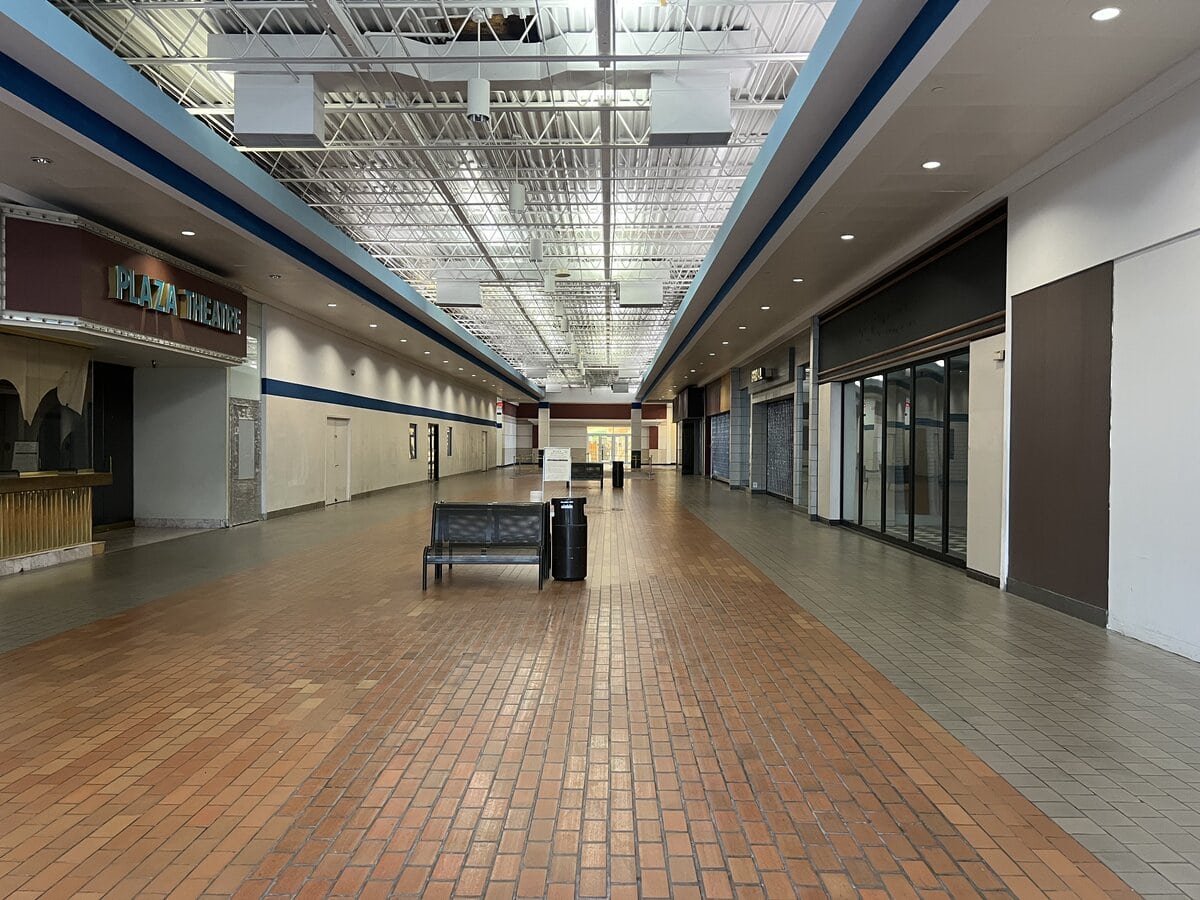
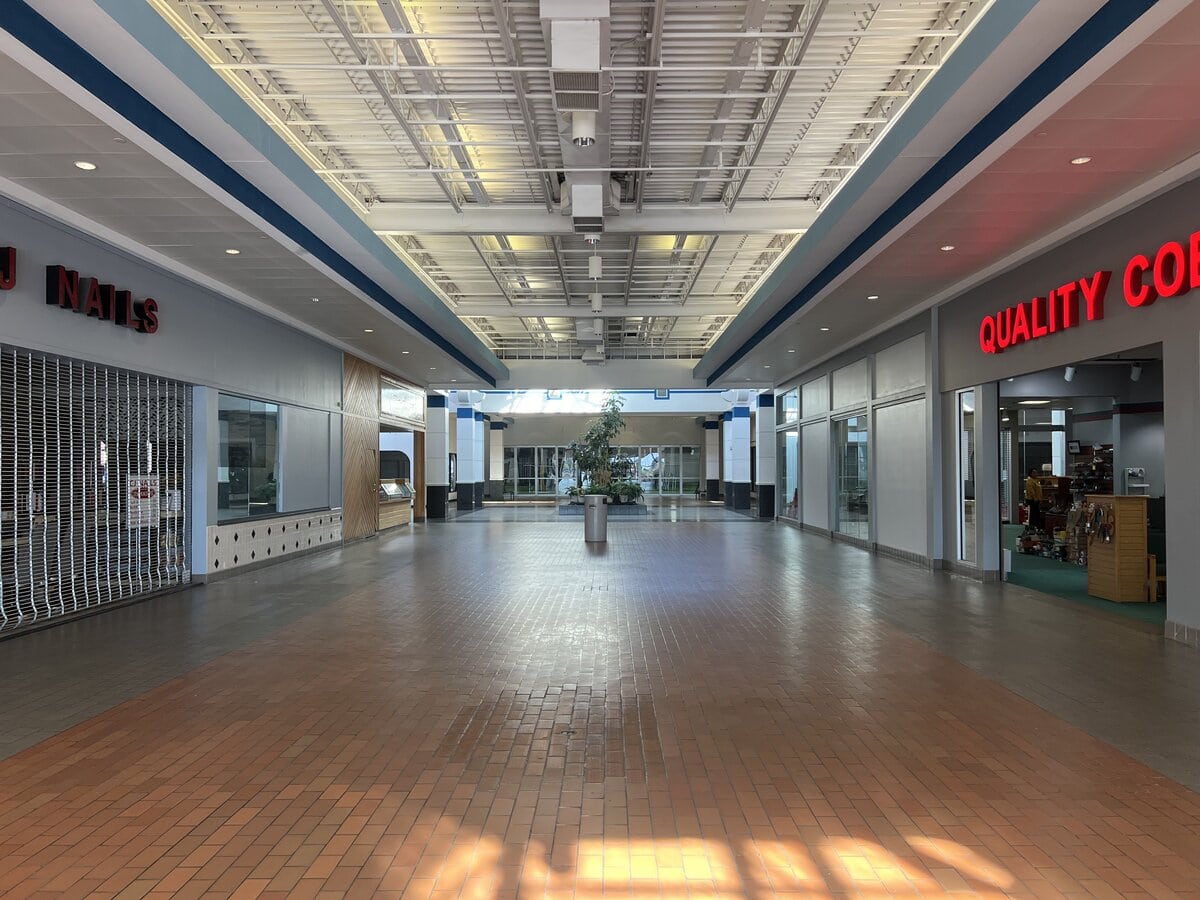

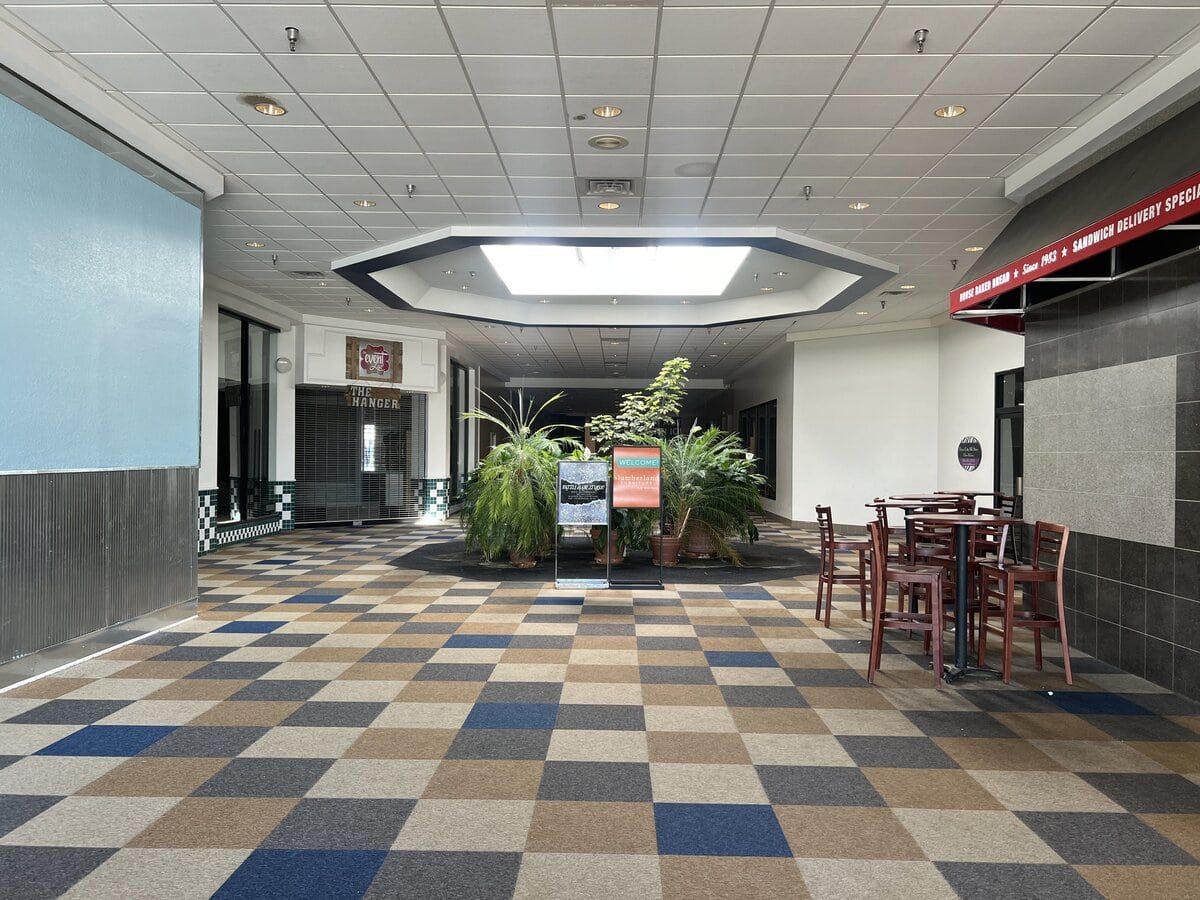
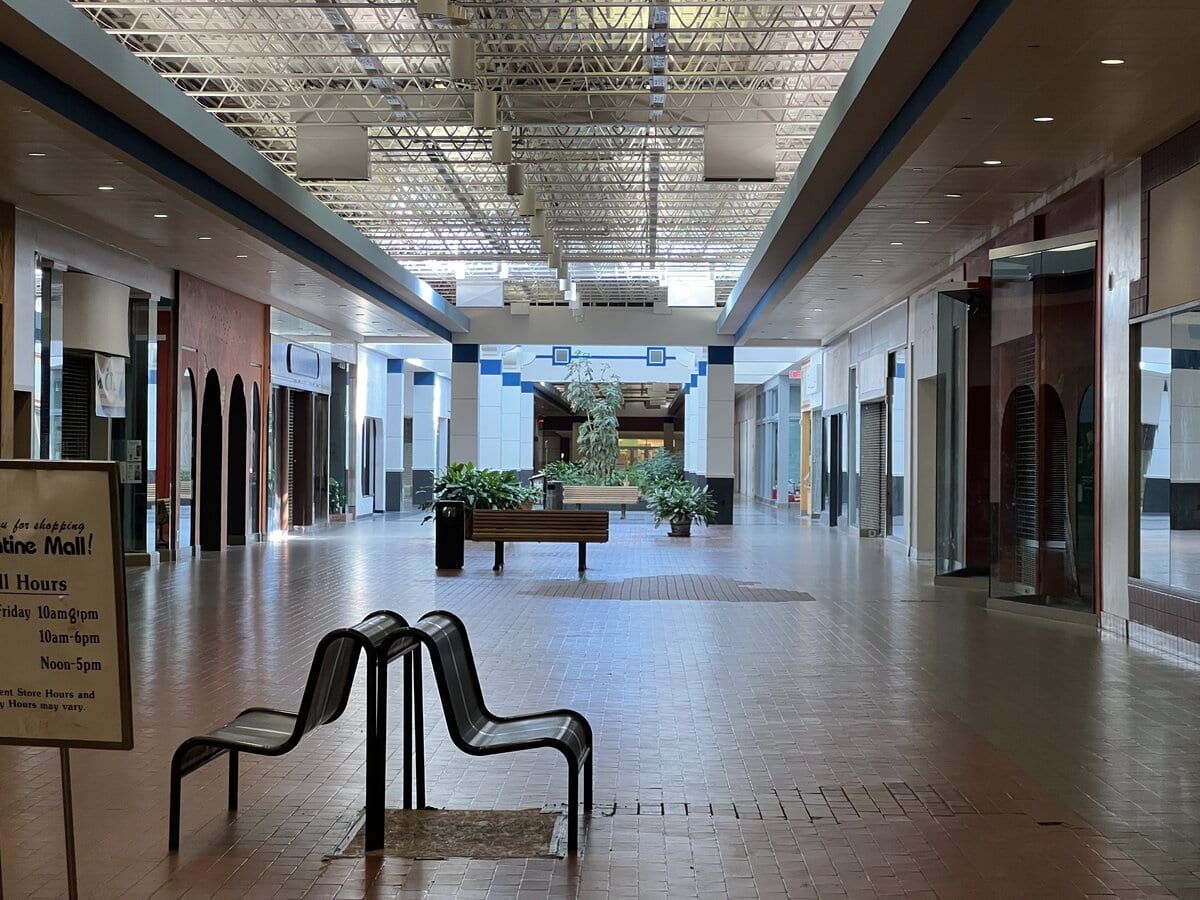
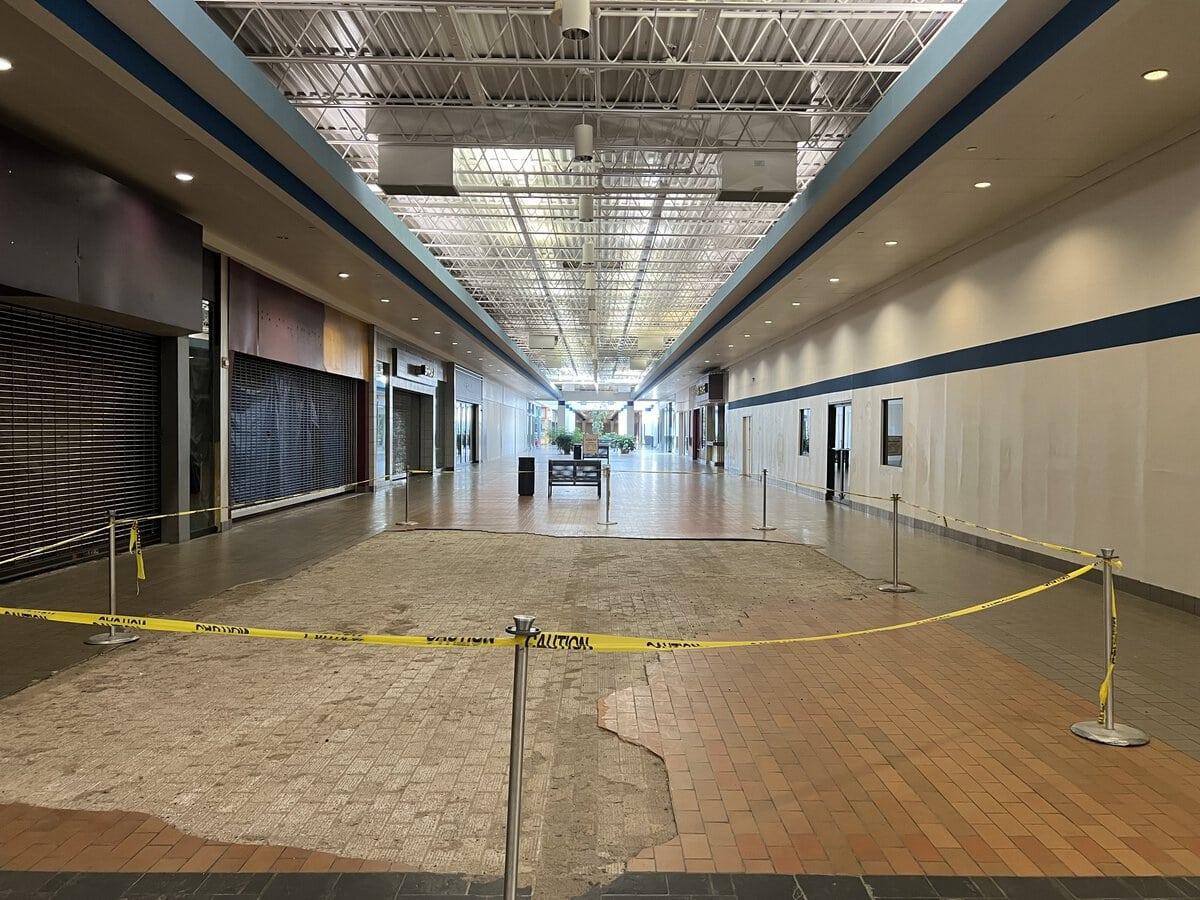

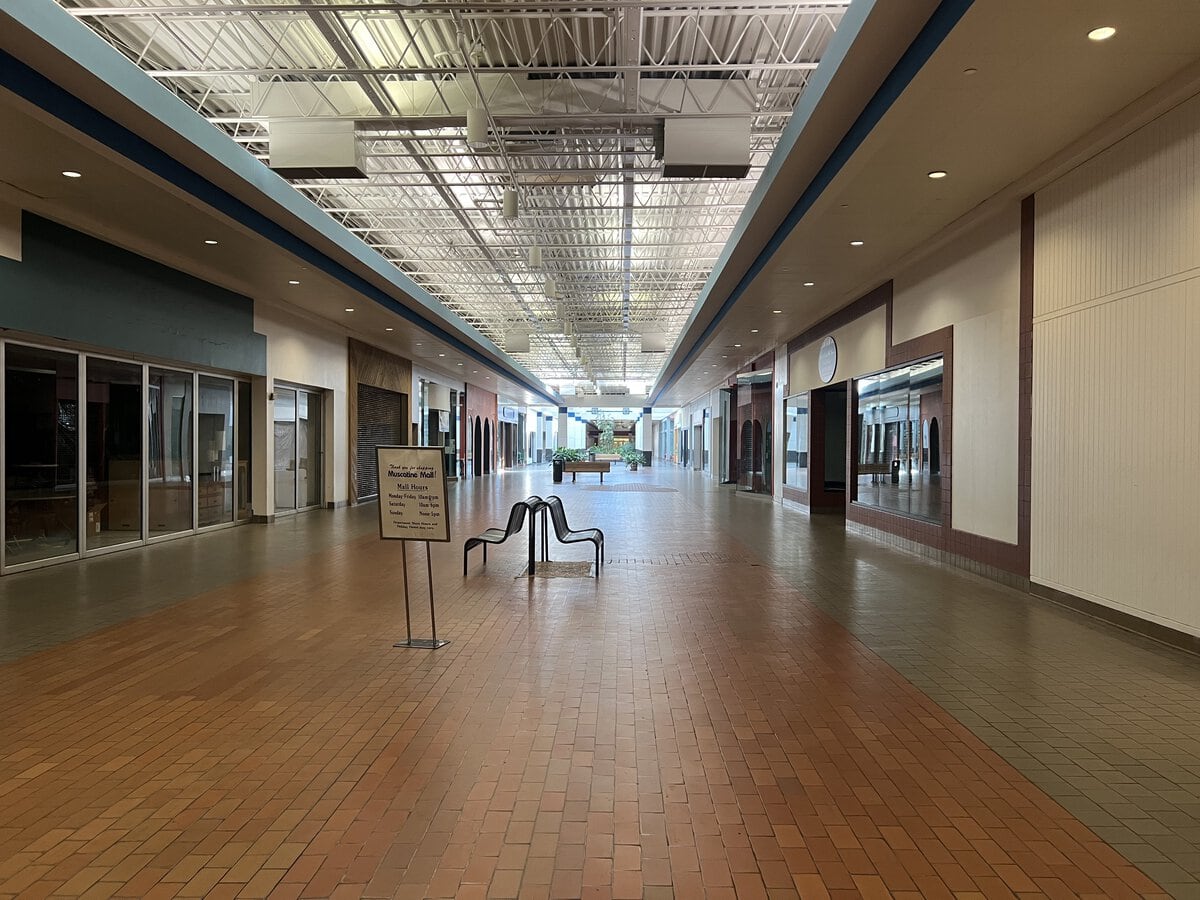
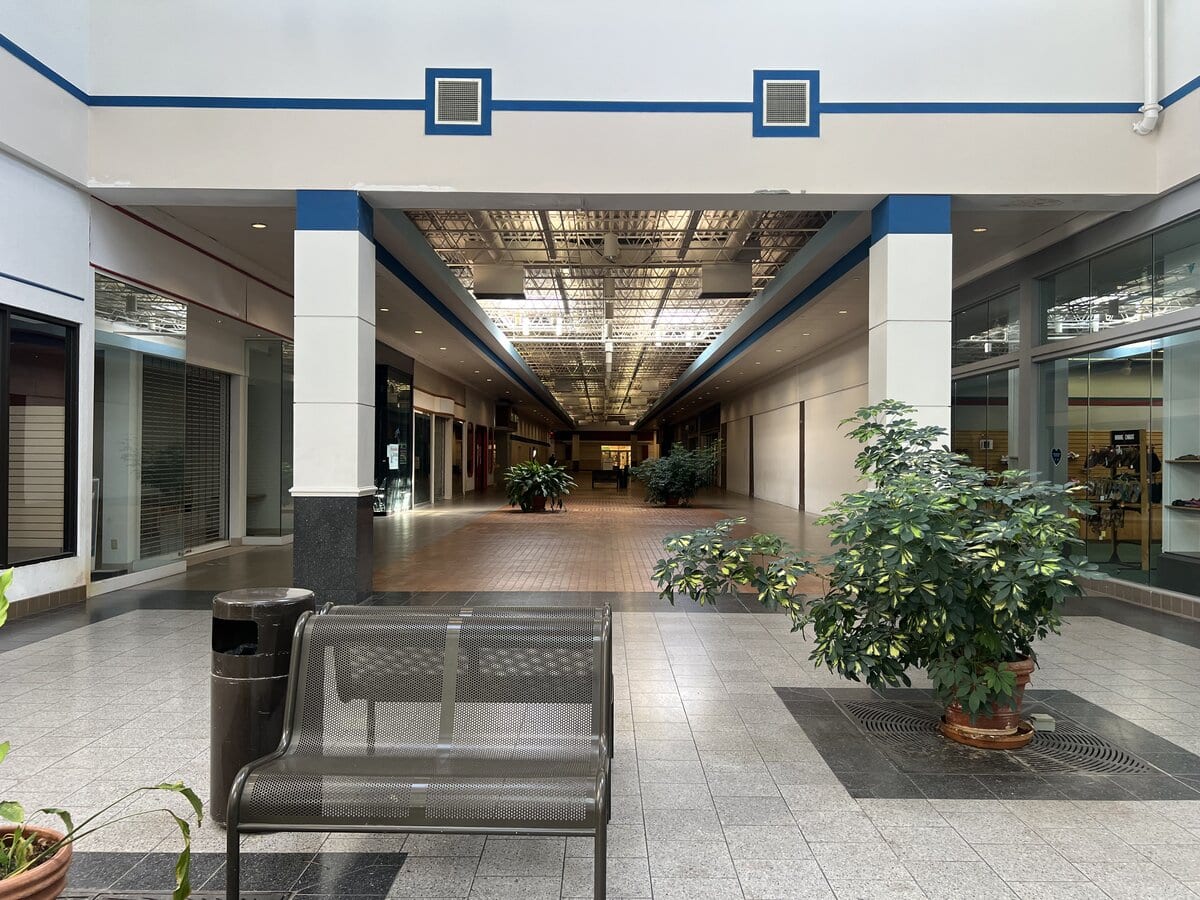
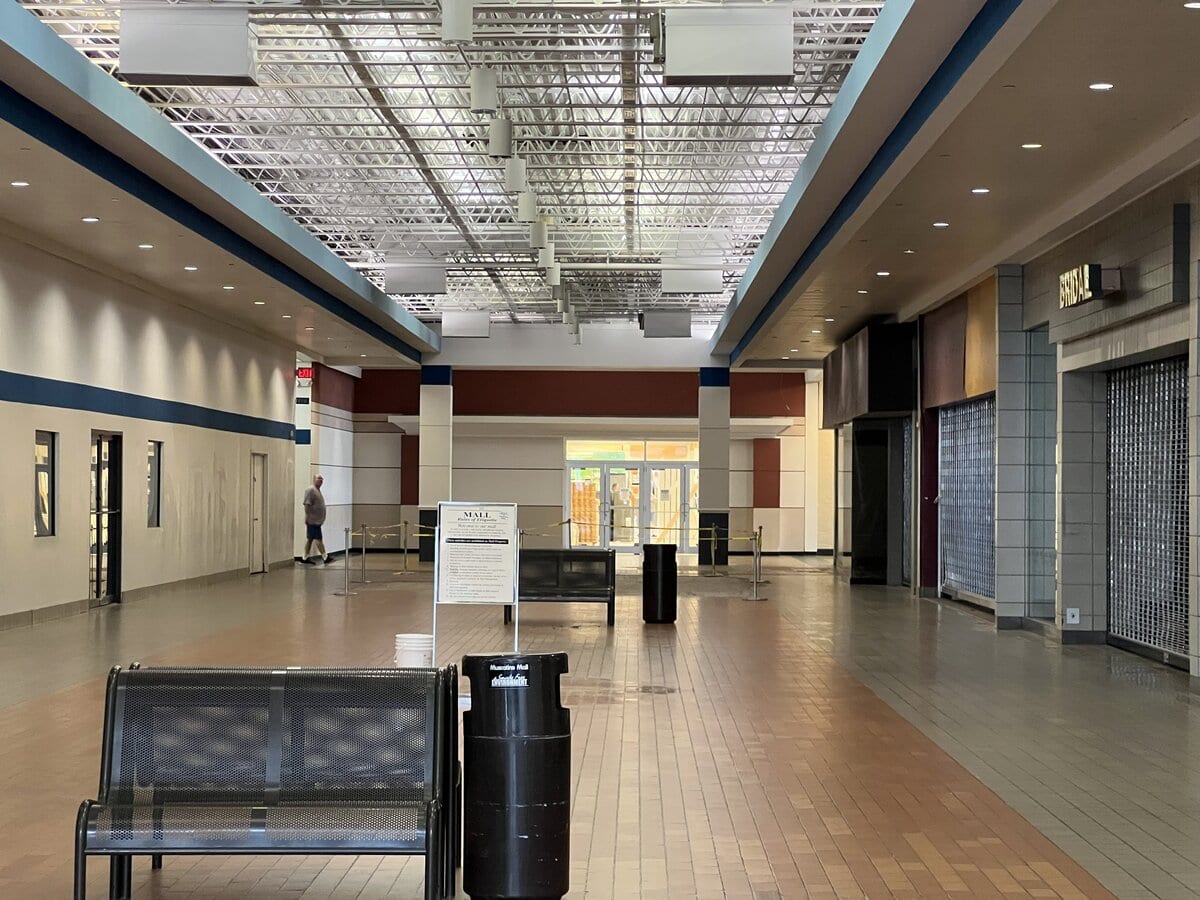
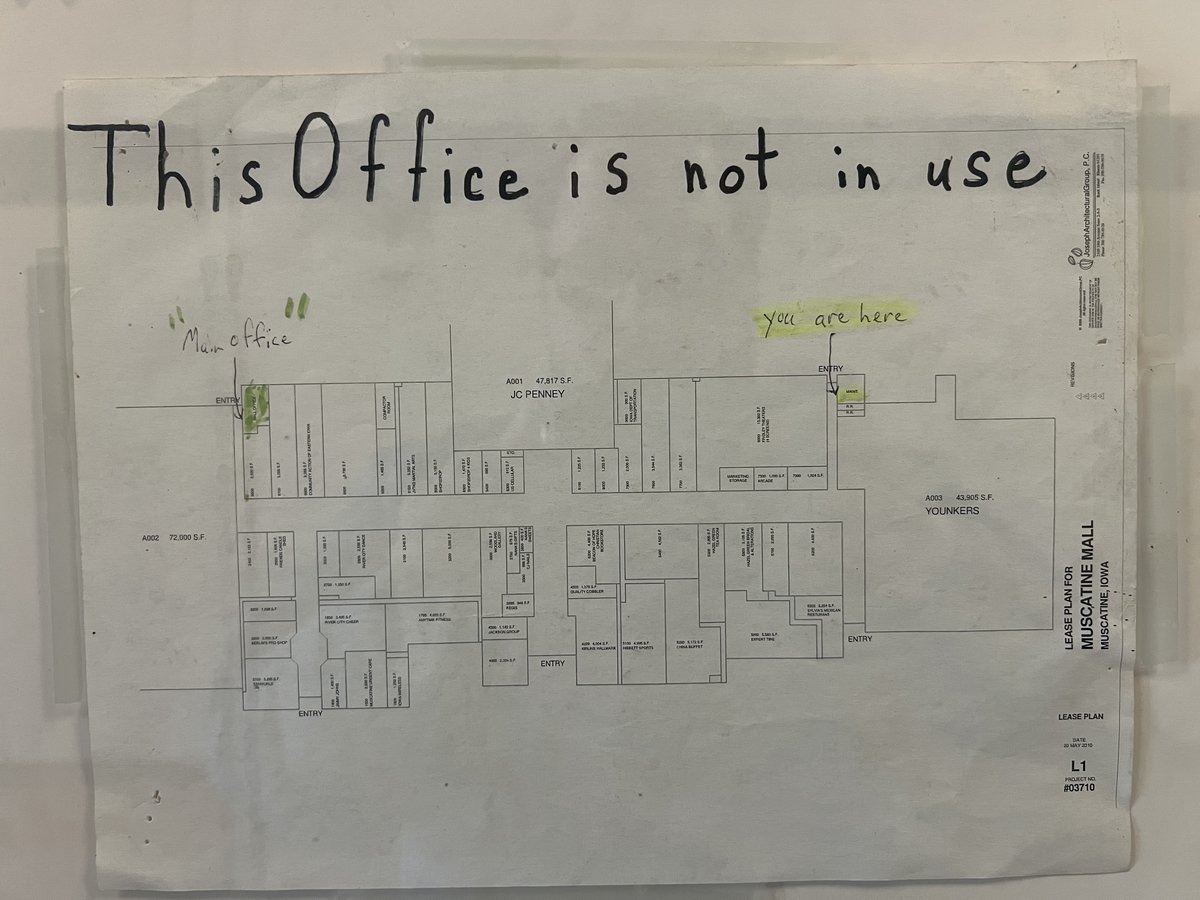
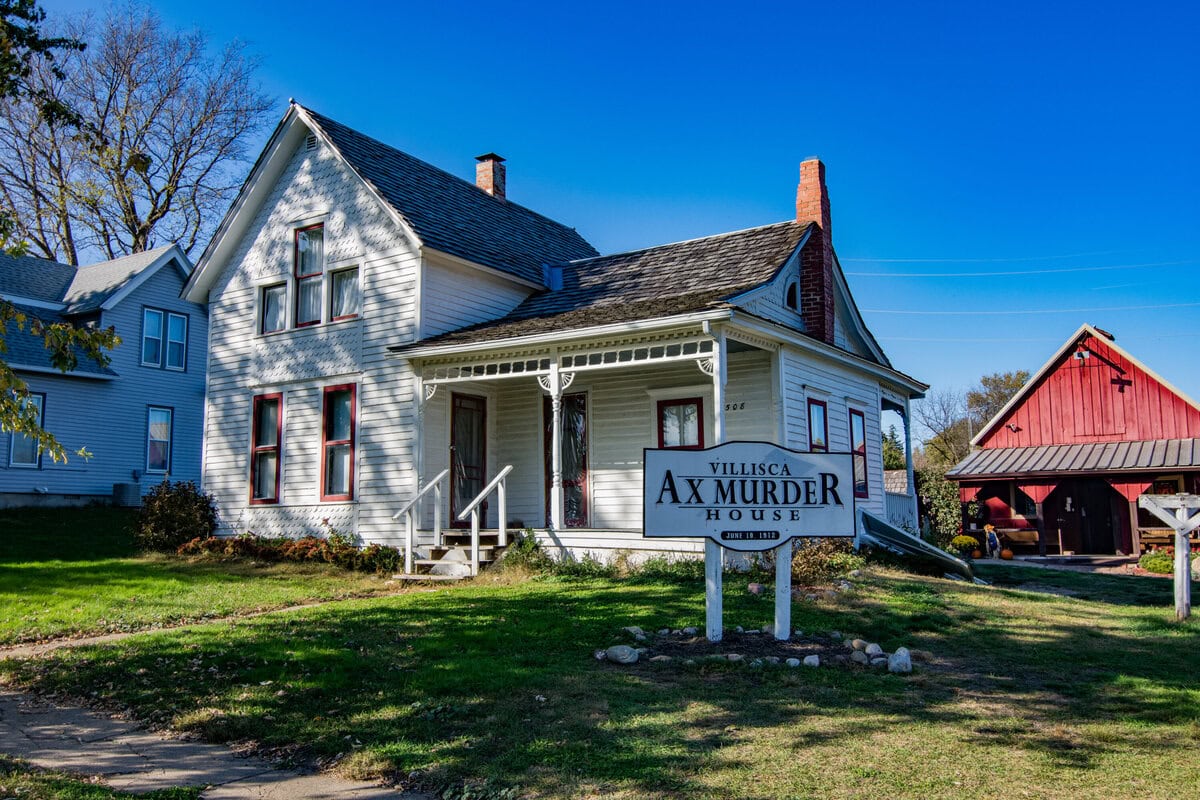
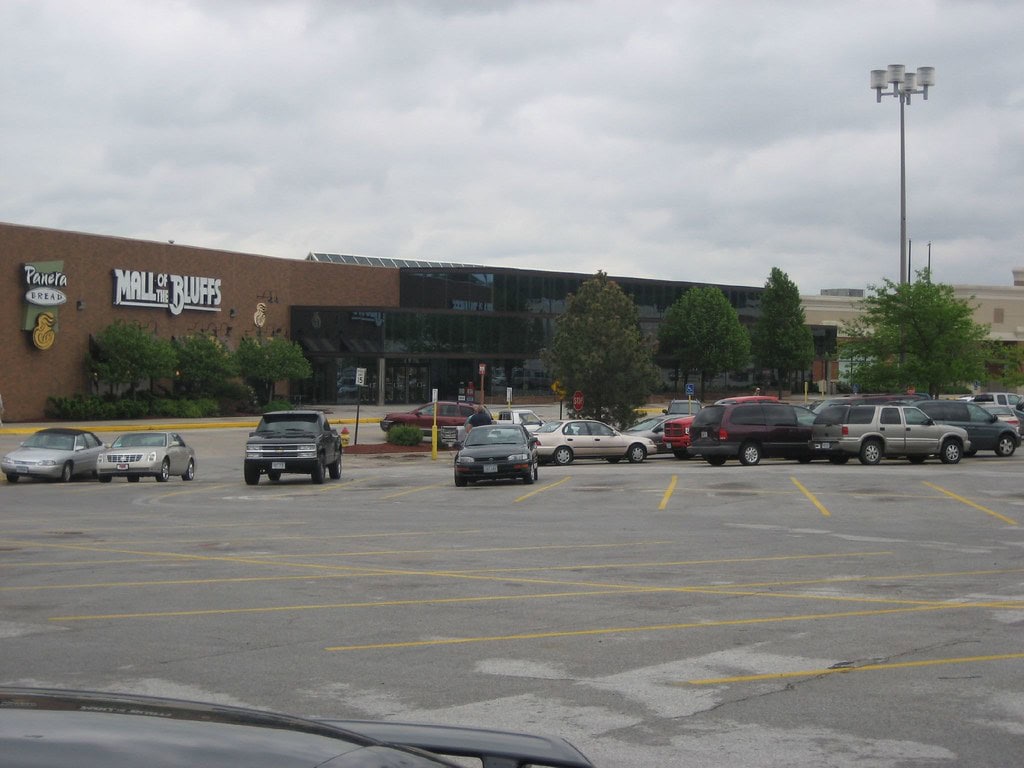
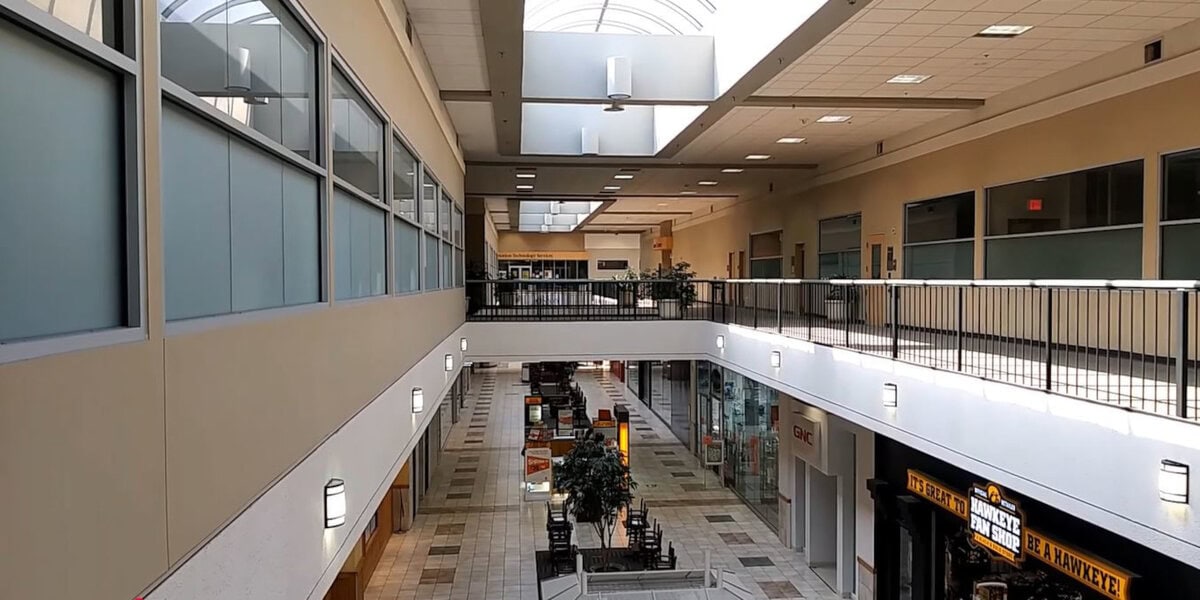
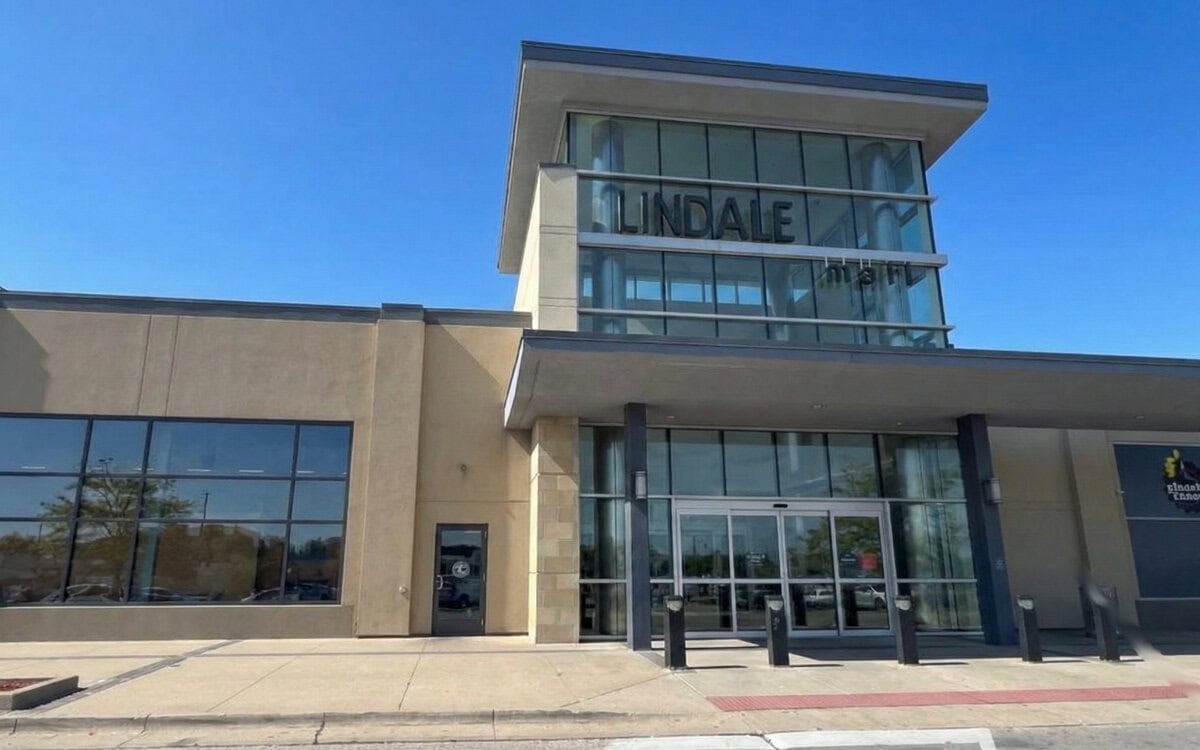
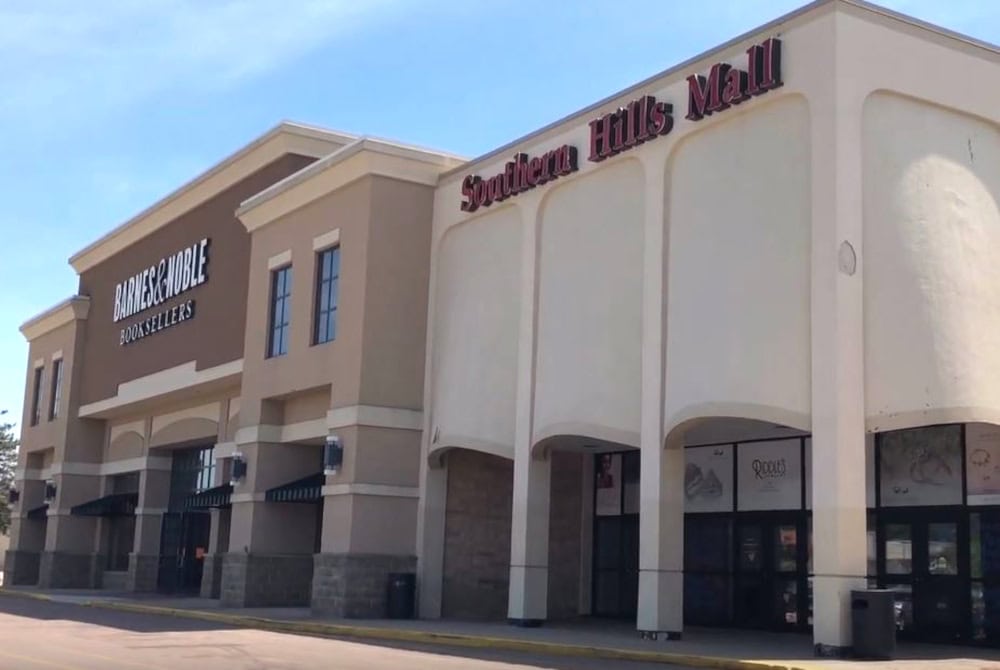
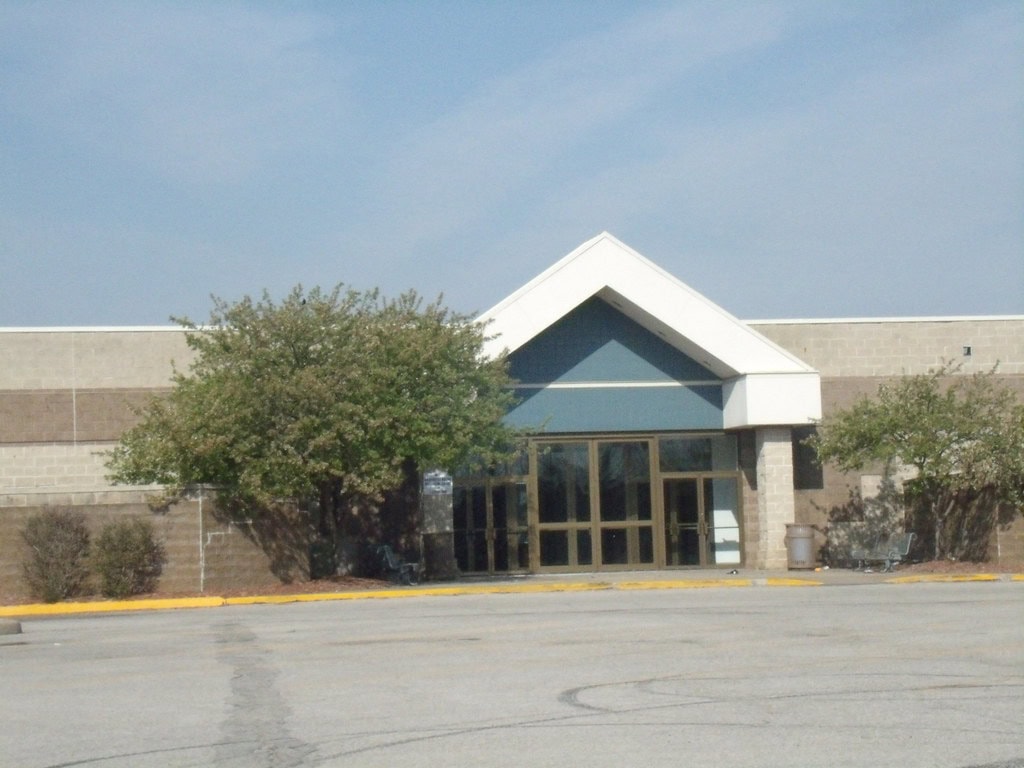
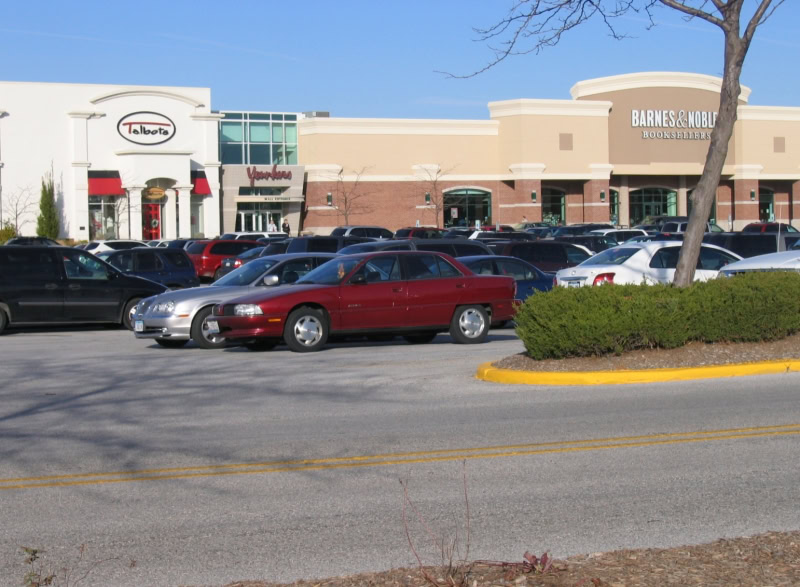
Muscatine mall needs five below,Ollie,s bargain Mart,TJ Maxx,old navy,big lots,sonic,bookstore,
Some of those chains are doing well in tertiary markets; others are less sure. Whether they come depends on incentives, foot traffic projections, and lease terms.